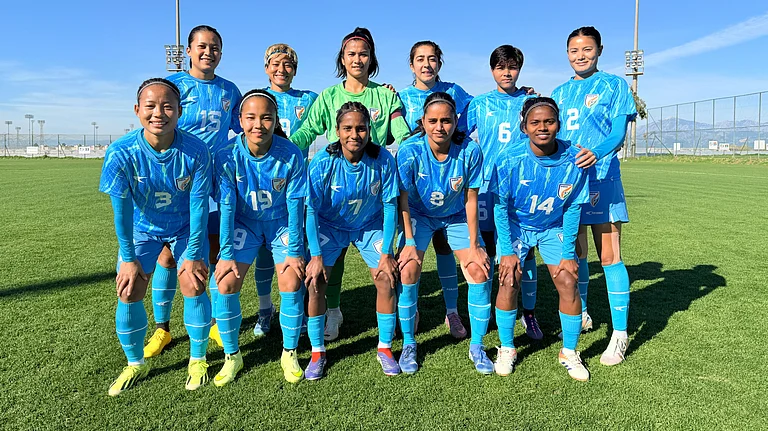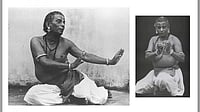Early in the morning,
perform your ambulation.
Having become clean and tidy,
pay your respects to parents and elders.
Remembering the name of God,
immerse yourself in studies.
Waste not these precious days
by insisting on going home.
Study hard, get educated.
Treat knowledge as your God,
diligently take advantage of it,
concentrating with all your heart.
Knowledge is wealth,
greater than all riches,
Wise is considered he,
who acquires it.
-- ‘The Greatest Wealth’, a poem by Savitribai Phule, the first female teacher of India
There is no dearth of resources, accessibilities, and opportunities in present-day hyper-capitalist societies. However, the burgeoning percentage of young minds stuck with a labyrinth of discourses, one paving another, must not be ignored. The mundane concerns of young college/university-going women reveal that many times they feel terribly hopeless and uncomfortable about various roles that they have to accomplish towards family, society, and nation.
And, when they make an attempt to negotiate with the complexities of society, a feeling of trepidation corrodes them from inside and, subsequently, they take an exit from the entire situation. So, what should be done to address the above-mentioned issues? What pedagogical tools can be used to engage with students in order to address their problems? The need of the hour is to mull over and do a round of thorough engagements on the contributions of Savitribai Phule. During the pre-independence era, many women relentlessly fought for various causes. Contemporary time, however, directs us towards the exemplary role played by Savitribai.
No discussion, discourse, or debate on women’s education will be complete without the mention of its doyen; Savitribai. She belonged to the humble Mali Dalit background but never ceased to prove her potential to become a panjandrum to liberate a large section of women from the various societal norms that confine them to domestic chores. It was an era where education was a privilege confined specifically to the upper castes and affluent males; women were not allowed to attend schools. The pre-independence India dealt with three major concerns—bringing girls to schools, the scarcity of female teachers and no/limited accessibility to formal education. All these factors were associated with the age-old established traditions, regressive social order and patriarchal structure.
In 1948, Savitribai, along with social reformers Fatima Sheikh and Jyotiba Phule, her husband, established a school for girls in Bhidewada, Pune. Savitribai served as the headmistress of the first school for girls in the country.
When she used to leave her home to go to school, people from the upper caste would fling cow dung and mud at her. This practice got so repetitive and ‘normal’ for Savitribai that she used to carry with her an extra pair of clothes which she would change into upon reaching the school. This was just one of the many instances of her passive resistance towards awakening girls and encouraging them to question conventional norms that discouraged them from getting formal education.
In the initial days of her campaigns, she had to face incessant physical violence where people would literally throw stones at Savitribai and her cohorts. However, she remained unaffected by the hate-mongers and continued to chase her aspiration of helping women unshackle from the chains of patriarchy and caste. “As I do the sacred task of teaching my fellow sisters, the stones or cow dung that you throw seem like flowers to me, May God bless you!” said Savitribai, which was mentioned in her memoir written by Balwant Sakharam Kolhe.
Savitribai was always ahead of time and she used to believe that ‘education is a lifelong endeavour’. She was married off at the age of nine and started her journey of formal education only after that. Based on her life, she had set up an order for girls; where she placed education at the top, play in the second position and domestic work, unless absolutely necessary, the last. She was one of those organic intellectuals who preached the idea of creating an epistemic circle where women were encouraged to use the pedagogy of questioning the social structure.
Savitribai’s contribution was not just confined to the field of women’s education but she also played a critical role at the grassroots level to liberate women against various social evils like infanticide and ostracisation of the widows. In 1852, she established Mahila Seva Mandal, an advocacy organisation set up to address women-related issues. She also organised a strike involving barbers in 1860 against the shaving of the hair of the widows. Because widows were subjected to sexual exploitation and regressive treatments, many would die by suicide. Some young widows were killed to avoid social stigmas.
Therefore, the Phules decided to open a special home named ‘Balyata Pratibandhak Gruha’ for widowed mothers and kids born out of wedlock. The aim was to free them from the shackles of cruelty inflicted on them by their families as well as society. She also played a pivotal role in establishing Satyasodhak Samaj in 1873 to ignite the minds of women about their rights and privileges. Through this platform, she made women understand why their voices and visibility matter. Satyasodhak Samaj, through the leadership of Phules, established a unique concept of marriage called Satyashodhak that rejected the very idea of Brahmin rituals and dowry and promoted inter-caste marriages.
She worked extensively to cater relief services to families affected by famine and was also at the front row to provide medical and rehabilitation aid to bubonic patients. In Indian history, Savitribai challenged conventions and became the first ever woman to light the pyre of her husband Jyotiba in 1890.
Apart from being a torchbearer of girls’ education, Savitribai was a prolific poetess. At the age of 23, she came up with her collection of poetries titled as ‘Kavya Phule’. Another compilation of poetries was released in 1892, which she named Bavan Kashi Subodh Ratnakar. She also made an anthology of some of the most significant speeches of her husband. Each of her writings genuinely reflects her personality and her idea of women’s liberation.
In recent times, when Bharat is planning for the successful implementation of the New Education Policy, aspects like more inclusivity through multidisciplinary fields and skill development—ideas promoted by Savitribai—will encourage many young women to internalise the very idea of hope, aspirations and materialising their dreams uninterrupted.
January 3 was the 193rd birth anniversary of Savitribai. We must spend some time looking back at the various contributions made by her that would help us fight societal norms and contribute towards nation-building. It is sometimes because of the rigid socialisation process that a woman lacks confidence, but when women get equal accessibility to various opportunities, then they outperform men. Mahatma Gandhi, the father of the nation, once said, “If you educate a man you educate an individual, but if you educate a woman you educate an entire family”.
Let’s not complain about what’s lacking in the system, rather let's invest our energy in being a part of the system and transforming our society. All this is possible when we are educated, united, and aware of the plight of weaker sections of our society.
Bijayani Mishra is Assistant Professor, Department of Sociology, Maitreyi College, University of Delhi





















